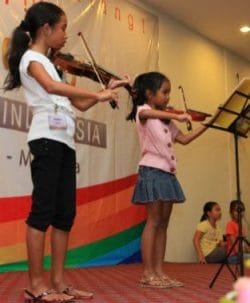
Jun 15, 2016 | Focolare Worldwide, Senza categoria
 The crisis of the refugees in Europe, along with its figures, the number of deaths, and the closed frontiers, is awaiting the world’s response, as well as that of many generous people. The news from Indonesia comes as the answer of the Youth for a United World in the city of Medan, Indonesia (four million inhabitants). “We could not turn a deaf ear to the refugees camped in Greece, and we wanted to do something concrete for them. So we decided to plan our United World Week 2016 by organizing a concert to gather funds for them. It was our way of giving strong affirmation that peace is possible and starts from each of us, with concrete actions.” “We had two weeks to prepare the event, which was not much, but we thought that we would succeed if we worked hard, forgetting our fatigue and economic difficulties. To cover the organisational expenses we sang even in restaurants. But God’s Providence came to our aid and we managed to pay for the lease of a hall, part of the sound system and other items.” “When I saw all those young people in the audience – says Ika – I tried not to think of myself but of the refugees, and took courage. “From the technical viewpoint – some confessed with great simplicity – «we made so many mistakes, but the atmosphere of enthusiasm and joy of the 350 participants convinced us that it was all worth the while!” Even a choir of four singers of a Catholic University wanted to contribute to the peace concert.” “The proceeds of € 600 correspond to three or four months’ basic salary in Indonesia, which is not much, but we were so happy that we managed to give our drop of help for our brethren in difficulty.” “It was an extraordinary experience – stressed Randi – I strongly felt that the differences in religions and ethnic groups are in reality very meaningful. I hope that many hearts have been touched and start loving with concrete gestures.” “On a wall poster entitled “Let’s bridge,” the participants signed up with their commitment to build peace.”
The crisis of the refugees in Europe, along with its figures, the number of deaths, and the closed frontiers, is awaiting the world’s response, as well as that of many generous people. The news from Indonesia comes as the answer of the Youth for a United World in the city of Medan, Indonesia (four million inhabitants). “We could not turn a deaf ear to the refugees camped in Greece, and we wanted to do something concrete for them. So we decided to plan our United World Week 2016 by organizing a concert to gather funds for them. It was our way of giving strong affirmation that peace is possible and starts from each of us, with concrete actions.” “We had two weeks to prepare the event, which was not much, but we thought that we would succeed if we worked hard, forgetting our fatigue and economic difficulties. To cover the organisational expenses we sang even in restaurants. But God’s Providence came to our aid and we managed to pay for the lease of a hall, part of the sound system and other items.” “When I saw all those young people in the audience – says Ika – I tried not to think of myself but of the refugees, and took courage. “From the technical viewpoint – some confessed with great simplicity – «we made so many mistakes, but the atmosphere of enthusiasm and joy of the 350 participants convinced us that it was all worth the while!” Even a choir of four singers of a Catholic University wanted to contribute to the peace concert.” “The proceeds of € 600 correspond to three or four months’ basic salary in Indonesia, which is not much, but we were so happy that we managed to give our drop of help for our brethren in difficulty.” “It was an extraordinary experience – stressed Randi – I strongly felt that the differences in religions and ethnic groups are in reality very meaningful. I hope that many hearts have been touched and start loving with concrete gestures.” “On a wall poster entitled “Let’s bridge,” the participants signed up with their commitment to build peace.”

Jun 14, 2016 | Focolare Worldwide
 Pastor of Mercy “To begin the Year of Mercy with a concrete gesture, I asked forgiveness of the members of my parish in case they didn’t always feel loved by me, and I invited them – those who wanted to – to come up and shake hands with me as a sign of our agreement to see each other with new eyes. A long queue was formed, and I was able to exchange a few words with every person. The next day, a parishioner who had not been there came to ask me if I would repeat the gesture because it had touched so many people in the village that it was still having lots of consequences.” (I. S. Hungary) Sharing “I’m nearly blind. The person who helps me to study had given me 1.220 shillings to buy the medicine against malaria. On the way to the pharmacy I met a poor woman who told me about her need. To help out, I gave her 200 shillings. Shortly afterwards, in front of the pharmacy I met another woman who was in dire financial straits: She didn’t have the money to buy the medicine that was necessary for her. I saw Jesus in her as well. So another 200 shillings went to her. But now I was short 400 shillings for my own medicine. Certain that God wouldn’t fail to help me in my need, I went into the pharmacy just the same. Inside I met a friend whom I hadn’t seen in a long time. I shared my need with him and he insisted on giving me 500 shillings: more than what I needed.” (R. S. Tanzania) At the Public Washhouse “Many of us were washing clothes at the public washhouse when a blind man arrived with two bed linens, a shirt and a turban that needed to be washed. I asked that we make room for him. Since no one wanted to move, I turned to him and said: “Baba, give me your things. I’ll wash them.” The others began to laugh. Before going away, pleased with the washing I had done, he gave me his blessing and also a small piece of soap that he had been jealously guarding. No one laughed anymore; on the contrary, they had begun to lend things to each other and offer help to one another.” (F. R. – Pakistan)
Pastor of Mercy “To begin the Year of Mercy with a concrete gesture, I asked forgiveness of the members of my parish in case they didn’t always feel loved by me, and I invited them – those who wanted to – to come up and shake hands with me as a sign of our agreement to see each other with new eyes. A long queue was formed, and I was able to exchange a few words with every person. The next day, a parishioner who had not been there came to ask me if I would repeat the gesture because it had touched so many people in the village that it was still having lots of consequences.” (I. S. Hungary) Sharing “I’m nearly blind. The person who helps me to study had given me 1.220 shillings to buy the medicine against malaria. On the way to the pharmacy I met a poor woman who told me about her need. To help out, I gave her 200 shillings. Shortly afterwards, in front of the pharmacy I met another woman who was in dire financial straits: She didn’t have the money to buy the medicine that was necessary for her. I saw Jesus in her as well. So another 200 shillings went to her. But now I was short 400 shillings for my own medicine. Certain that God wouldn’t fail to help me in my need, I went into the pharmacy just the same. Inside I met a friend whom I hadn’t seen in a long time. I shared my need with him and he insisted on giving me 500 shillings: more than what I needed.” (R. S. Tanzania) At the Public Washhouse “Many of us were washing clothes at the public washhouse when a blind man arrived with two bed linens, a shirt and a turban that needed to be washed. I asked that we make room for him. Since no one wanted to move, I turned to him and said: “Baba, give me your things. I’ll wash them.” The others began to laugh. Before going away, pleased with the washing I had done, he gave me his blessing and also a small piece of soap that he had been jealously guarding. No one laughed anymore; on the contrary, they had begun to lend things to each other and offer help to one another.” (F. R. – Pakistan)  Failed divorce “It wasn’t easy to make Susanna accept my decision to ask for a divorce, especially because I intended to move to another city with the woman I had begun a new relationship with. After the initial refusal my wife’s attitude changed. I was shocked by her great dignity and didn’t understand where she was getting the energy to treat me so well in spite of my betrayal. This thought took away my peace. One day I invited her out for lunch at a restaurant: I wanted to know. With simplicity she confided to me that she had discovered God’s love through a group of several Christian friends she had met. God always loves us despite our infidelities, and He’s close to us in the hardships of life. That’s all it took to make me change my idea. Susanna and I had begun again.” (L. M. USA)
Failed divorce “It wasn’t easy to make Susanna accept my decision to ask for a divorce, especially because I intended to move to another city with the woman I had begun a new relationship with. After the initial refusal my wife’s attitude changed. I was shocked by her great dignity and didn’t understand where she was getting the energy to treat me so well in spite of my betrayal. This thought took away my peace. One day I invited her out for lunch at a restaurant: I wanted to know. With simplicity she confided to me that she had discovered God’s love through a group of several Christian friends she had met. God always loves us despite our infidelities, and He’s close to us in the hardships of life. That’s all it took to make me change my idea. Susanna and I had begun again.” (L. M. USA)
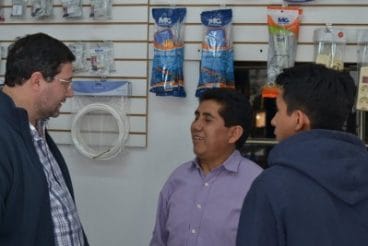
Jun 13, 2016 | Focolare Worldwide
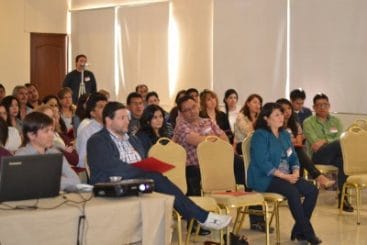 “Cochabamba is really the heart of the country, the fourth largest city of Bolivia, located in a fertile valley surrounded by the Andes Mountains. The journey is already preparing me to overcome my own personal mountains and take the leap of leaving behind my culture, presumptions and prejudices so that I can be sufficiently disposed to grasp the beauty of this experience where each of us wishes to be a gift for the other.” “On the morning of the 26th we visit the Old City, which has a traditional air about it and conserves many colonial images that can be found in the numerous temples and in the large villas. In the afternoon we visit the Universidad Católica Boliviana San Pablo for a meeting with 70 young people from different departments. Discussions of theory follow experiences that are preceded by a group exercise by Aldo Calliera who invites us to find our true north because – he says – the world has lost its compass. For us in the Economy of Communion, our north is the other person.” The 1st Conference for EoC business owners began on May 27th and I was fortunate to attend, watching and listening so that I could tell about the extraordinary event that was made up of the stories of many businesses that, day in, day out are putting their money on communion.” In his welcome speech Argentinian business owner, Ramón Cerviño, reminds us that we’ve come for an experience of communion, because communion is the true wealth of the EoC.” “The programme takes us to the very roots of the charism of unity to rediscover the origins of the EoC.
“Cochabamba is really the heart of the country, the fourth largest city of Bolivia, located in a fertile valley surrounded by the Andes Mountains. The journey is already preparing me to overcome my own personal mountains and take the leap of leaving behind my culture, presumptions and prejudices so that I can be sufficiently disposed to grasp the beauty of this experience where each of us wishes to be a gift for the other.” “On the morning of the 26th we visit the Old City, which has a traditional air about it and conserves many colonial images that can be found in the numerous temples and in the large villas. In the afternoon we visit the Universidad Católica Boliviana San Pablo for a meeting with 70 young people from different departments. Discussions of theory follow experiences that are preceded by a group exercise by Aldo Calliera who invites us to find our true north because – he says – the world has lost its compass. For us in the Economy of Communion, our north is the other person.” The 1st Conference for EoC business owners began on May 27th and I was fortunate to attend, watching and listening so that I could tell about the extraordinary event that was made up of the stories of many businesses that, day in, day out are putting their money on communion.” In his welcome speech Argentinian business owner, Ramón Cerviño, reminds us that we’ve come for an experience of communion, because communion is the true wealth of the EoC.” “The programme takes us to the very roots of the charism of unity to rediscover the origins of the EoC.  Thus, we go to visit the Centro Rincón de Luz, a social project that offers academic support to children living in a very poor quarter. Their families don’t always manage to assist them in their school work. They live in small huts of one or two rooms, often under-nourished and even beaten . . . Maricruz, who is now one of the directors, was once herself one of those children. Solidarity begets more solidarity. The virtuous circle of reciprocity is key to responding to such concrete social problems.” “We also visit the Casa de los Niños. Chiara Lubich had once shared that she wished that one day all orphanages could be closed and every child enjoy the warmth and love of a family. Many people like Arístides began to follow her dream and got to work wherever and however they could, providing temporary lodging and support for the families of those children who suffer the greatest abandonment, the ones afflicted with AIDS. In the recent years, with the help of others, they’ve been able to offer dignified lodging to a hundred families. In spite of the suffering of those families, many of them HIV positive, the beauty of the little village shows that it’s possible to embrace innocent suffering and fill it with joy, games, flowers and a spirit of hope.” “In the meeting among Mexican, Paraguayan, Argentinian and Bolivian business owners we share our dreams, failures and successes. A special meeting is held on May 28th at the Gran Hotel Cochabamba, with 120 people including business owners, students, experts, officials and people interested in knowing more about a new culture for the economy. Sunday, May 29th is a day of feasting: It’s the 25th anniversary of the Economy of Communion! There is singing, dancing, local foods and much sharing.” “Thank you Bolivia for having helped me to rediscover my true north where Heaven and earth seem to mingle.” Source: Website Cono Sur
Thus, we go to visit the Centro Rincón de Luz, a social project that offers academic support to children living in a very poor quarter. Their families don’t always manage to assist them in their school work. They live in small huts of one or two rooms, often under-nourished and even beaten . . . Maricruz, who is now one of the directors, was once herself one of those children. Solidarity begets more solidarity. The virtuous circle of reciprocity is key to responding to such concrete social problems.” “We also visit the Casa de los Niños. Chiara Lubich had once shared that she wished that one day all orphanages could be closed and every child enjoy the warmth and love of a family. Many people like Arístides began to follow her dream and got to work wherever and however they could, providing temporary lodging and support for the families of those children who suffer the greatest abandonment, the ones afflicted with AIDS. In the recent years, with the help of others, they’ve been able to offer dignified lodging to a hundred families. In spite of the suffering of those families, many of them HIV positive, the beauty of the little village shows that it’s possible to embrace innocent suffering and fill it with joy, games, flowers and a spirit of hope.” “In the meeting among Mexican, Paraguayan, Argentinian and Bolivian business owners we share our dreams, failures and successes. A special meeting is held on May 28th at the Gran Hotel Cochabamba, with 120 people including business owners, students, experts, officials and people interested in knowing more about a new culture for the economy. Sunday, May 29th is a day of feasting: It’s the 25th anniversary of the Economy of Communion! There is singing, dancing, local foods and much sharing.” “Thank you Bolivia for having helped me to rediscover my true north where Heaven and earth seem to mingle.” Source: Website Cono Sur
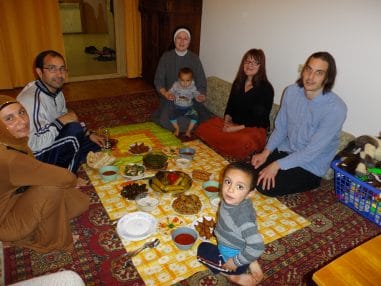
Jun 11, 2016 | Focolare Worldwide
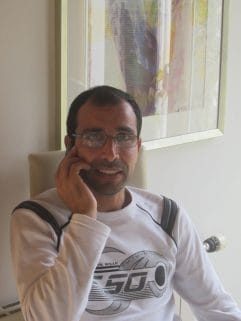 “I had to leave everything behind: my wife, two small children and my country. On the other hand, I didn’t have a choice. Being young and a teacher, I would have had to follow ISIS and spread its ideas. But since I opposed it, if I had remained there they would have murdered me.” When Mohamed reached Graz, Austria, like many other immigrants he was parked in a refugee camp, doing nothing for months and having absolutely no contact with the outside world. “We felt so isolated and depressed,” he recounts, “but then somebody did begin to show an intererst in us.” It was the local Focolare community which, through the mediation of a Syrian friend who had been living in Graz for three years, invited 40 of the Syrian refugees from the camp to to get together at a parish hall. This gave them the opportunity to present their precise needs: to learn the language and find a job. The community got to work and in a short time managed to put together a German lanugage course. Some gave money for books, one woman was able to find 15 bicycles from neighbours, which she had repaired at her own expense for the students that had to travel 10 km to attend the lessons. Others found odd jobs for them fixing up houses and doing gardening work. “We finally had something useful that we could do,” Mohamed whispered with relief. “Finally someone took us by the hand and appreciated us.” A friendship began that only deepened and became more heartfelt. It was only logical to get together, to share meals with one another and also to begin a cultural and religious dialogue. The first step was to attend the mosque together where they met many other people. Once, they were more than 400: “It was a great thing for us,” Mohamed confided. “Finally, we were able to feel like ourselves, there we could forget about what had happened to us and enter into direct contact with God. Sharing this moment with Muslims and Christians together made us feel even closer to one another.”
“I had to leave everything behind: my wife, two small children and my country. On the other hand, I didn’t have a choice. Being young and a teacher, I would have had to follow ISIS and spread its ideas. But since I opposed it, if I had remained there they would have murdered me.” When Mohamed reached Graz, Austria, like many other immigrants he was parked in a refugee camp, doing nothing for months and having absolutely no contact with the outside world. “We felt so isolated and depressed,” he recounts, “but then somebody did begin to show an intererst in us.” It was the local Focolare community which, through the mediation of a Syrian friend who had been living in Graz for three years, invited 40 of the Syrian refugees from the camp to to get together at a parish hall. This gave them the opportunity to present their precise needs: to learn the language and find a job. The community got to work and in a short time managed to put together a German lanugage course. Some gave money for books, one woman was able to find 15 bicycles from neighbours, which she had repaired at her own expense for the students that had to travel 10 km to attend the lessons. Others found odd jobs for them fixing up houses and doing gardening work. “We finally had something useful that we could do,” Mohamed whispered with relief. “Finally someone took us by the hand and appreciated us.” A friendship began that only deepened and became more heartfelt. It was only logical to get together, to share meals with one another and also to begin a cultural and religious dialogue. The first step was to attend the mosque together where they met many other people. Once, they were more than 400: “It was a great thing for us,” Mohamed confided. “Finally, we were able to feel like ourselves, there we could forget about what had happened to us and enter into direct contact with God. Sharing this moment with Muslims and Christians together made us feel even closer to one another.”  Four Muslims attended the summer Mariapolis, which coincided with the end of Ramadan and was celebrated by all with Arab music, dancing and Syrian sweets. During those days Mohamed learned of his mother’s death. It was a moving occasion to pray together for her and to recite some Psalms that respected everyone’s feelings. Trying to understand another person’s pain is also a form of dialogue. Mohamed then asked the Authorities for permission to reunite with his family in Austria, which turned out to be very complicated. His wife went on foot 22 times for 7 hours amidst cold, hunger and danger to the border – and was promptly sent back. Once she was even locked up in prison. But she finally managed to cross. Thus the long awaited family reunion drew nearer, but it was suggested that they settle in Vienna rather than Graz. Mohamed regretfully left his friends in Graz, unaware of the warm acceptance that would also receive amongst the Focolare community in the capital, which had been notified of his arrival. The community got busy finding a place for the family to live, which was not easy due to the scarcity of housing. They thought of some women religious friends who ran a home for the elderly. In just one day there was already a positive response thanks to a reassuring conversation with the Focolare members. So, now it’s been two months that Mohamed and his family have been living with the Catholic reverend sisters, without any inconvenience for either side: the sisters, acknowledging and respecting the customs of their Muslim guests and the family dwelling in a structure with many prominent Catholic signs. This is also part of dialogue and, as Mohamed declares: “Christians and Muslims, we’re truly brothers and sisters.”
Four Muslims attended the summer Mariapolis, which coincided with the end of Ramadan and was celebrated by all with Arab music, dancing and Syrian sweets. During those days Mohamed learned of his mother’s death. It was a moving occasion to pray together for her and to recite some Psalms that respected everyone’s feelings. Trying to understand another person’s pain is also a form of dialogue. Mohamed then asked the Authorities for permission to reunite with his family in Austria, which turned out to be very complicated. His wife went on foot 22 times for 7 hours amidst cold, hunger and danger to the border – and was promptly sent back. Once she was even locked up in prison. But she finally managed to cross. Thus the long awaited family reunion drew nearer, but it was suggested that they settle in Vienna rather than Graz. Mohamed regretfully left his friends in Graz, unaware of the warm acceptance that would also receive amongst the Focolare community in the capital, which had been notified of his arrival. The community got busy finding a place for the family to live, which was not easy due to the scarcity of housing. They thought of some women religious friends who ran a home for the elderly. In just one day there was already a positive response thanks to a reassuring conversation with the Focolare members. So, now it’s been two months that Mohamed and his family have been living with the Catholic reverend sisters, without any inconvenience for either side: the sisters, acknowledging and respecting the customs of their Muslim guests and the family dwelling in a structure with many prominent Catholic signs. This is also part of dialogue and, as Mohamed declares: “Christians and Muslims, we’re truly brothers and sisters.”
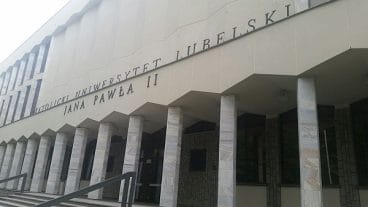
Jun 9, 2016 | Focolare Worldwide
 The spacious “Knowledge Sharing Centre” Hall of the John Paul II Catholic University of Lublin hosted a Conflicts, Dialogue and Culture of Unity Conference , June 3-4, 2016. The conference was meant to promote the transmission of knowledge through academic dialogue amongst 180 people, including scholars and professors from a variety of academic fields of the social sciences. Ninety five interactive presentations were given that included discussions, questions and answers, as well as requests for sharing research efforts. It was a gift shared amongst different specializations, but also amongst generations and geographic regions of Europe, and it was open to the challenges of the whole world. The conference that opened with Jesús Morán’s presentation titled “The Culture of Unity and the great challenges of humanity today” was motivated by the 20th anniversary of the conferral of the honorary doctorate in Social Sciences to Chiara Lubich, by the Catholic University of Lublin in June 1996. The conferral speech by Professor Adam Biela explained the motivation: The charism of unity “is a concrete and practical actualization of a new vision of social, economic, political, educational structures and of religious relations. It guides, recommends, suggests, teaches and promotes unity” among people. Biela grasped in the revolutionary inspiration of Chiara Lubich that began to manifest itself in the 1940s, the elements of a new paradigm for the social sciences, which led him to coin the unprecedented term: paradigm of unity. The event, 20 years later, in Lublin was “a complex and interesting” meeting, according to Professor Italo Fiorin, president of the graduate school of Formation Science at LUMSA University in Rome, Italy. “. . . especially because of the title, which connects three words: Conflict – reflecting on the not catastrophic but problematic situation of the world that calls for a sense of responsibility. Dialogue: as the path that leads to and changes conflict into something else through positive action. Unity: as the result of a dialogue that is not expressed in reaching a single way of thinking, but of reaching a greater awareness of one’s own identity.” “For 200 to 300 years knowledge has been divided into fields,” says neuro-scientist Catherine Belzung from the University of Tours, France. “But the actual fragmentation prevents progress from being made. The time of interdisciplinary dialogue has arrived. Chiara Lubich’s thought seems to me the paradigm to keep before us when we are interested in interdisciplinary research, because it’s a Trinitarian paradigm: Each field remains distinct, but must have within it the knowledge of the other disciplines in order to be transformed and, in this way, continue the dialogue. I think that the unity and distinction model that is already being proposed in the spiritual field can be very easily transferred to the field of interdisciplinary dialogue.” Professor Marek Rembierz, pedagogue from the University of Silesia, Katowice, Poland, remarked: “It turned out very interesting for me to think on an interdisciplinary plane. And it took quite a change in mentality: modifying the language of science and culture with the language of the heart. It was a source of inspiration for the participants and could also be so for the social life of individuals. Gianvittorio Caprara, full professor of psychology and social neurosciences at Sapienza University in Rome: “Chiara Lubich had some particularly good and fertile intuitions; fertile because they inspired a work, a movement; now they inspire this conference and other research. It’s ongoing reflection that becomes inspiration. One particular discovery for me was the deep significance of the concept of fraternity, precisely in a society like ours that seriously risks not having brothers and sisters anymore. I encourage the Focolare to insist even more on the systematic research of knowledge so that the action can be even more transformative and efficacious.” “With regard to fraternity,” Fiorin says, “Professor Stefano Zamagni worked on a fascinating point in his presentation on the Economy of Communion and even referred it to politics. I believe that such a reading is also applicable to education, to inspire the education and teaching connection and to lead to important educational solutions. It’s a terrain that merits exploring, to which I intend to devote my attention.” The closing session of the conference was entrusted to Professor Biela, Daniela Ropelato, vice-president of Sophia University Institute (IUS) and Renata Simon from the International Focolare Centre in Rocca di Papa, Italy. A thought from Chiara Lubich offered some powerful guidelines to give continuity to the interdisciplinary dialogue that permeated the conference: “In order to welcome [God’s] All within you, you need to be the nothingness of Jesus Forsaken. (. . .) You have to place yourself in front of everyone in a learning position, because you really do have something to learn. And only nothingness gathers all and holds it tightly to itself in unity.” It was an encouragement that was unanimously accepted: to collaborate, with competence, wisdom and an ability to dialogue even on the academic plane.
The spacious “Knowledge Sharing Centre” Hall of the John Paul II Catholic University of Lublin hosted a Conflicts, Dialogue and Culture of Unity Conference , June 3-4, 2016. The conference was meant to promote the transmission of knowledge through academic dialogue amongst 180 people, including scholars and professors from a variety of academic fields of the social sciences. Ninety five interactive presentations were given that included discussions, questions and answers, as well as requests for sharing research efforts. It was a gift shared amongst different specializations, but also amongst generations and geographic regions of Europe, and it was open to the challenges of the whole world. The conference that opened with Jesús Morán’s presentation titled “The Culture of Unity and the great challenges of humanity today” was motivated by the 20th anniversary of the conferral of the honorary doctorate in Social Sciences to Chiara Lubich, by the Catholic University of Lublin in June 1996. The conferral speech by Professor Adam Biela explained the motivation: The charism of unity “is a concrete and practical actualization of a new vision of social, economic, political, educational structures and of religious relations. It guides, recommends, suggests, teaches and promotes unity” among people. Biela grasped in the revolutionary inspiration of Chiara Lubich that began to manifest itself in the 1940s, the elements of a new paradigm for the social sciences, which led him to coin the unprecedented term: paradigm of unity. The event, 20 years later, in Lublin was “a complex and interesting” meeting, according to Professor Italo Fiorin, president of the graduate school of Formation Science at LUMSA University in Rome, Italy. “. . . especially because of the title, which connects three words: Conflict – reflecting on the not catastrophic but problematic situation of the world that calls for a sense of responsibility. Dialogue: as the path that leads to and changes conflict into something else through positive action. Unity: as the result of a dialogue that is not expressed in reaching a single way of thinking, but of reaching a greater awareness of one’s own identity.” “For 200 to 300 years knowledge has been divided into fields,” says neuro-scientist Catherine Belzung from the University of Tours, France. “But the actual fragmentation prevents progress from being made. The time of interdisciplinary dialogue has arrived. Chiara Lubich’s thought seems to me the paradigm to keep before us when we are interested in interdisciplinary research, because it’s a Trinitarian paradigm: Each field remains distinct, but must have within it the knowledge of the other disciplines in order to be transformed and, in this way, continue the dialogue. I think that the unity and distinction model that is already being proposed in the spiritual field can be very easily transferred to the field of interdisciplinary dialogue.” Professor Marek Rembierz, pedagogue from the University of Silesia, Katowice, Poland, remarked: “It turned out very interesting for me to think on an interdisciplinary plane. And it took quite a change in mentality: modifying the language of science and culture with the language of the heart. It was a source of inspiration for the participants and could also be so for the social life of individuals. Gianvittorio Caprara, full professor of psychology and social neurosciences at Sapienza University in Rome: “Chiara Lubich had some particularly good and fertile intuitions; fertile because they inspired a work, a movement; now they inspire this conference and other research. It’s ongoing reflection that becomes inspiration. One particular discovery for me was the deep significance of the concept of fraternity, precisely in a society like ours that seriously risks not having brothers and sisters anymore. I encourage the Focolare to insist even more on the systematic research of knowledge so that the action can be even more transformative and efficacious.” “With regard to fraternity,” Fiorin says, “Professor Stefano Zamagni worked on a fascinating point in his presentation on the Economy of Communion and even referred it to politics. I believe that such a reading is also applicable to education, to inspire the education and teaching connection and to lead to important educational solutions. It’s a terrain that merits exploring, to which I intend to devote my attention.” The closing session of the conference was entrusted to Professor Biela, Daniela Ropelato, vice-president of Sophia University Institute (IUS) and Renata Simon from the International Focolare Centre in Rocca di Papa, Italy. A thought from Chiara Lubich offered some powerful guidelines to give continuity to the interdisciplinary dialogue that permeated the conference: “In order to welcome [God’s] All within you, you need to be the nothingness of Jesus Forsaken. (. . .) You have to place yourself in front of everyone in a learning position, because you really do have something to learn. And only nothingness gathers all and holds it tightly to itself in unity.” It was an encouragement that was unanimously accepted: to collaborate, with competence, wisdom and an ability to dialogue even on the academic plane.
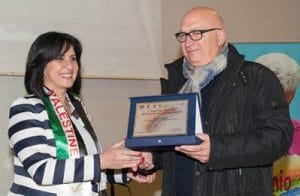
Jun 7, 2016 | Focolare Worldwide
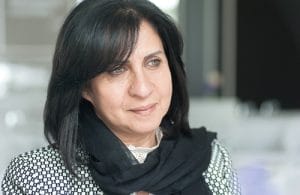 “I met Bella, a Jewish woman, at a Focolare centre in Jerusalem. I had told her the story about my husband in an Israeli jail where he was tortured. She listened to me, although I noted a certain inner conflict. She was in front of a crossroads: whether to be an Israeli and therefore reject everything I was saying, or to feel compassionate toward me. At first she wasn’t able to accept me and went back to the room where we had met. I followed her and told her I was sorry that I had upset her. Bella explained to me that it wasn’t my fault, but that of the system. Then I asked if we could begin again, and she was touched. That’s how our friendship was born. A wall separates my city of Bethlehem from her city of Jerusalem, but there are no longer walls between the two of us. I pray that many Israeli can look at our friendship. Bella lives the spirit of the Focolare in the sense that we’re all children of God, and it’s only love and compassion that leads us to live together with one another. We human beings have built a wall around Bethlehem, but you cannot build anything alone. God gave us the freedom to build it, or to tear it down within us as well.” This is how Vera Baboun, the first Catholic woman mayor of Bethlehem responded to the question of whether it was possible to establish true friendship between Palestinians and Israeli. The occasion of the meeting was the7th Chiara Lubich, Manfredonia City For Universal Brotherhood Award” in March 2016.
“I met Bella, a Jewish woman, at a Focolare centre in Jerusalem. I had told her the story about my husband in an Israeli jail where he was tortured. She listened to me, although I noted a certain inner conflict. She was in front of a crossroads: whether to be an Israeli and therefore reject everything I was saying, or to feel compassionate toward me. At first she wasn’t able to accept me and went back to the room where we had met. I followed her and told her I was sorry that I had upset her. Bella explained to me that it wasn’t my fault, but that of the system. Then I asked if we could begin again, and she was touched. That’s how our friendship was born. A wall separates my city of Bethlehem from her city of Jerusalem, but there are no longer walls between the two of us. I pray that many Israeli can look at our friendship. Bella lives the spirit of the Focolare in the sense that we’re all children of God, and it’s only love and compassion that leads us to live together with one another. We human beings have built a wall around Bethlehem, but you cannot build anything alone. God gave us the freedom to build it, or to tear it down within us as well.” This is how Vera Baboun, the first Catholic woman mayor of Bethlehem responded to the question of whether it was possible to establish true friendship between Palestinians and Israeli. The occasion of the meeting was the7th Chiara Lubich, Manfredonia City For Universal Brotherhood Award” in March 2016.  Bethlehem is a Palestinian city located in the West Bank. It has a population of 40,000 people, of which 28% are Christian and 72% Muslim. It is the city where Jesus was born, some 10 km south of Jerusalem. The Church of the Nativity is one of the oldest churches in the world. Nevertheless, “the wall also conditions our faith, because we were accustomed to visiting the original sites of Jesus’s life from the time we were children. There is a whole generation of young Palestinians that has never prayed at the Holy Sepluchre in Jerusalem,” said Vera Baboun. “We’re the Nativity capital of the world. We celebrate and offer a message of peace to the world, while peace is precisely what is missing in Bethlehem. After the 40% rate of cancellations this year we decided with the City Council to lower taxes on the tourist industry by 80%. We did it to offer them support even though it signifies a depletion of resources for the Municipality. But who supports us? Who supports our dual identity: our universal Christian identity and our Palestinian identity? But what makes you do it? “Only God’s love. I feel it very strongly. I don’t care at all about the power, the fame. Being mayor is a burden for me that costs me much. After the death of my husband and after having worked my whole life in education, I decided to take my husband’s place because he was involved politically in working for the liberation of Palestine.” You have often declared: “Will the world ever be able to live in peace as long as the city of peace is walled up?” “As long as the city of Bethlehem is walled up, there will be a wall around peace. We’re under siege. As for the world, it would be better to work at liberating peace not only for Bethlehem, but for our own sake to free ourselves from the way of evil, from using religion as a mask to cover up evil and war.” Interview byAurelio Molé for Città Nuova (see Città Nuova, No. 5, May 2016)
Bethlehem is a Palestinian city located in the West Bank. It has a population of 40,000 people, of which 28% are Christian and 72% Muslim. It is the city where Jesus was born, some 10 km south of Jerusalem. The Church of the Nativity is one of the oldest churches in the world. Nevertheless, “the wall also conditions our faith, because we were accustomed to visiting the original sites of Jesus’s life from the time we were children. There is a whole generation of young Palestinians that has never prayed at the Holy Sepluchre in Jerusalem,” said Vera Baboun. “We’re the Nativity capital of the world. We celebrate and offer a message of peace to the world, while peace is precisely what is missing in Bethlehem. After the 40% rate of cancellations this year we decided with the City Council to lower taxes on the tourist industry by 80%. We did it to offer them support even though it signifies a depletion of resources for the Municipality. But who supports us? Who supports our dual identity: our universal Christian identity and our Palestinian identity? But what makes you do it? “Only God’s love. I feel it very strongly. I don’t care at all about the power, the fame. Being mayor is a burden for me that costs me much. After the death of my husband and after having worked my whole life in education, I decided to take my husband’s place because he was involved politically in working for the liberation of Palestine.” You have often declared: “Will the world ever be able to live in peace as long as the city of peace is walled up?” “As long as the city of Bethlehem is walled up, there will be a wall around peace. We’re under siege. As for the world, it would be better to work at liberating peace not only for Bethlehem, but for our own sake to free ourselves from the way of evil, from using religion as a mask to cover up evil and war.” Interview byAurelio Molé for Città Nuova (see Città Nuova, No. 5, May 2016)

 The crisis of the refugees in Europe, along with its figures, the number of deaths, and the closed frontiers, is awaiting the world’s response, as well as that of many generous people. The news from Indonesia comes as the answer of the Youth for a United World in the city of Medan, Indonesia (four million inhabitants). “We could not turn a deaf ear to the refugees camped in Greece, and we wanted to do something concrete for them. So we decided to plan our United World Week 2016 by organizing a concert to gather funds for them. It was our way of giving strong affirmation that peace is possible and starts from each of us, with concrete actions.” “We had two weeks to prepare the event, which was not much, but we thought that we would succeed if we worked hard, forgetting our fatigue and economic difficulties. To cover the organisational expenses we sang even in restaurants. But God’s Providence came to our aid and we managed to pay for the lease of a hall, part of the sound system and other items.” “When I saw all those young people in the audience – says Ika – I tried not to think of myself but of the refugees, and took courage. “From the technical viewpoint – some confessed with great simplicity – «we made so many mistakes, but the atmosphere of enthusiasm and joy of the 350 participants convinced us that it was all worth the while!” Even a choir of four singers of a Catholic University wanted to contribute to the peace concert.” “The proceeds of € 600 correspond to three or four months’ basic salary in Indonesia, which is not much, but we were so happy that we managed to give our drop of help for our brethren in difficulty.” “It was an extraordinary experience – stressed Randi – I strongly felt that the differences in religions and ethnic groups are in reality very meaningful. I hope that many hearts have been touched and start loving with concrete gestures.” “On a wall poster entitled “Let’s bridge,” the participants signed up with their commitment to build peace.”
The crisis of the refugees in Europe, along with its figures, the number of deaths, and the closed frontiers, is awaiting the world’s response, as well as that of many generous people. The news from Indonesia comes as the answer of the Youth for a United World in the city of Medan, Indonesia (four million inhabitants). “We could not turn a deaf ear to the refugees camped in Greece, and we wanted to do something concrete for them. So we decided to plan our United World Week 2016 by organizing a concert to gather funds for them. It was our way of giving strong affirmation that peace is possible and starts from each of us, with concrete actions.” “We had two weeks to prepare the event, which was not much, but we thought that we would succeed if we worked hard, forgetting our fatigue and economic difficulties. To cover the organisational expenses we sang even in restaurants. But God’s Providence came to our aid and we managed to pay for the lease of a hall, part of the sound system and other items.” “When I saw all those young people in the audience – says Ika – I tried not to think of myself but of the refugees, and took courage. “From the technical viewpoint – some confessed with great simplicity – «we made so many mistakes, but the atmosphere of enthusiasm and joy of the 350 participants convinced us that it was all worth the while!” Even a choir of four singers of a Catholic University wanted to contribute to the peace concert.” “The proceeds of € 600 correspond to three or four months’ basic salary in Indonesia, which is not much, but we were so happy that we managed to give our drop of help for our brethren in difficulty.” “It was an extraordinary experience – stressed Randi – I strongly felt that the differences in religions and ethnic groups are in reality very meaningful. I hope that many hearts have been touched and start loving with concrete gestures.” “On a wall poster entitled “Let’s bridge,” the participants signed up with their commitment to build peace.”

 Pastor of Mercy “To begin the Year of Mercy with a concrete gesture, I asked forgiveness of the members of my parish in case they didn’t always feel loved by me, and I invited them – those who wanted to – to come up and shake hands with me as a sign of our agreement to see each other with new eyes. A long queue was formed, and I was able to exchange a few words with every person. The next day, a parishioner who had not been there came to ask me if I would repeat the gesture because it had touched so many people in the village that it was still having lots of consequences.” (I. S.
Pastor of Mercy “To begin the Year of Mercy with a concrete gesture, I asked forgiveness of the members of my parish in case they didn’t always feel loved by me, and I invited them – those who wanted to – to come up and shake hands with me as a sign of our agreement to see each other with new eyes. A long queue was formed, and I was able to exchange a few words with every person. The next day, a parishioner who had not been there came to ask me if I would repeat the gesture because it had touched so many people in the village that it was still having lots of consequences.” (I. S. 
 “Cochabamba is really the heart of the country, the fourth largest city of
“Cochabamba is really the heart of the country, the fourth largest city of 



